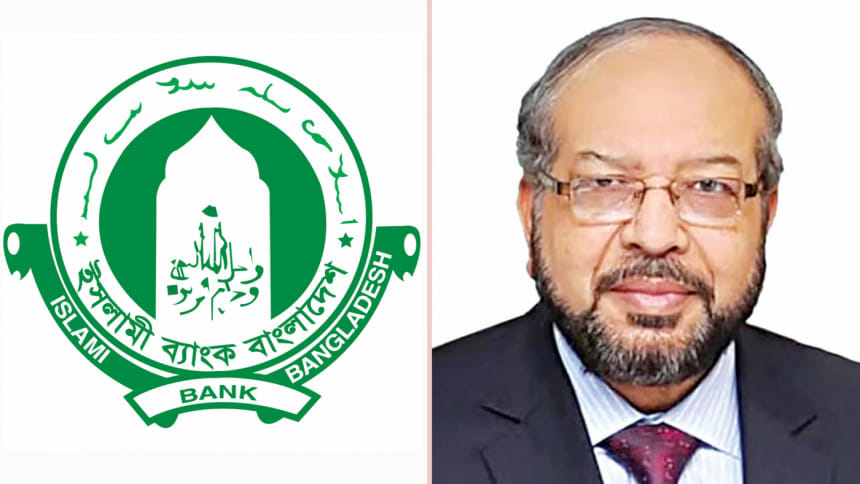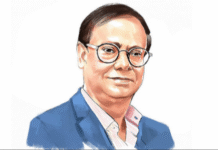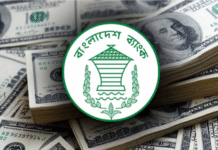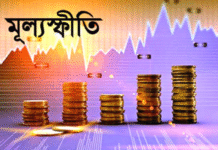
Islami Bank, the largest private bank by deposits in 2017, was a lucrative target for Sheikh Hasina’s cronies when an influential business group with her blessing occupied it by force – a “perfect robbery” in Bangladesh’s banking history.
On the morning of January 5, 2017, alleged operatives of the Directorate General of Forces Intelligence or DGFI picked up the then chairman, a vice-chairman and the managing director of the Islami Bank from their homes and brought them to the agency’s headquarters one by one.
They were forced to resign. Hours later, the bank’s board, meeting under the noses of military officers at a Dhaka hotel, chose their replacements.
Seven years later, the former managing director, Abdul Mannan, broke his silence over the takeover of the bank by S Alam Group in one of the worst episodes in the banking sector during Hasina’s 15-year rule.
“It’s very disappointing that a government security agency was used to serve the purpose of a private group. Unfortunately, the central bank seemed to be complicit in it,” Mannan said in an interview with The Daily Star yesterday.
“I was taken into the DGFI chief Brig Gen Akbar Hossain’s room. He first praised me, sought my suggestions about the economy and then asked me to resign,” said Mannan.
Mannan politely refused to step down.
“I have an emotional bond with Islami Bank and it was very difficult for me to resign from the post. I had been involved with the bank since its early days,” Mannan said. “I don’t know if the MD of any organisation in the world had to face such a stressful situation.”
To Mannan, the DGFI office “felt like hell”. When he said it was a difficult decision for him to resign, the DGFI chief said the “higher authorities” wanted Mannan to leave the bank.
“I felt so bad inside the DGFI office that they measured my blood pressure several times.”
Mannan, who had been the bank’s managing director since 2010, alleged that he was “taken hostage and forced to resign at gunpoint”. And many top officials of the Bangladesh Bank had stayed in their offices until late at night to accept his resignation. It all happened on the then central bank governor Fazle Kabir’s watch.
The debate over the ownership of the Shariah-based bank, which was formed in 1983, goes as far back as 2006 when law enforcers arrested terrorist group leader Siddiqul Islam aka Bangla Bhai. They found around 32 chequebooks from different banks, including the Islami Bank, in his possession. At the time, media reports focused sharply on the bank.
“A lot of reports tied Islami Bank to terror financing without facts and figures,” said Mannan, who worked at times as a spokesman for the bank and responded to media queries.
Islami Bank suffered another major reputational damage in 2011 after the then state minister for home affairs Shamsul Hoque Tuku alleged that the bank had spent around 8 percent of its profit on terror financing.
“That was the most irresponsible statement from a very responsible person and I think the government should have sacked him for this comment.
“The minister realised his mistake and said it was a slip of the tongue when I visited his house,” Mannan said.
But the damage had already been done.
Tuku’s accusation “hugely impacted” Islami Bank’s ability to execute transactions through corresponding banking, an essential service in payments for global trade.
Pressure on the bank intensified again in 2013 when protesters campaigned at Shahbagh for the execution of Jamaat-e-Islami leaders for crimes against humanity in the 1971 Liberation War.
As protests continued, an economist alleged that up to Tk 1,700 crore funds were funnelled out of the bank for terror financing.
“All of them branded the Islami Bank as a Jamaat-e-Islami bank. And talk of a takeover spread far and wide,” Mannan said.
In truth, 70 percent of the bank’s shares were held by foreign investors, including the Islamic Development Bank (IDB), 15 percent by local investors, 5 percent by the government and 10 percent were floated as public shares, according to Mannan.
Mannan said Atiur Rahman, who served Bangladesh Bank as governor from 2009 to 2016, tried to shield the bank from takeover. “That was a great support for us,” he added.
The ownership of the bank started to change for the worse in 2016 when different groups piled pressure on the government to shut the bank or take it over.
Four independent directors had been appointed to the bank at the government’s bidding, a telltale sign that the bank was quickly being taken over.
The four independent directors were Shamim Mohammad Afzal, former director general of the Islamic Foundation, Syed Ahsanul Alam, professor of Chattogram University, Helal Ahmed Chowdhury, former managing director of Pubali Bank, and Islami Bank’s founding managing director M Azizul Haque.
That was the initial stage of a backdoor takeover of the bank by S Alam Group, sending an alarm to foreign investors.
“The shareholders from Saudi Arabia and Kuwait were kept in the dark about the boardroom coup, and complained bitterly about it,” the London-based Economist magazine reported in 2017.
One of them, the Jeddah-based IDB, pointed out that it was only given three days’ notice of the board meeting in January 2017, and therefore was not able to send anyone to attend it. The IDB later sold all of its shares in the Islami Bank.
With the takeover completed that month, Arastoo Khan, regarded as one of the country’s most effective bureaucrats, was appointed as the chairman of the bank. His reign lasted a little more than one year. His sudden departure shocked other directors and employees, with one director saying more changes were afoot.
Before the “boardroom coup” by S Alam, the bank held a third of Bangladesh’s Islamic banking assets. With a balance sheet of $10 billion, it handled more than a quarter of the inward remittances. All came as a big appeal to S Alam.
The Chattogram-based conglomerate deployed various proxy investors to buy a large number of shares and build stakes in the Islami Bank.
“We realised that S Alam Group was going to take over the largest private sector bank. Previously, we were not familiar with the companies that were buying a large number of shares of Islami Bank,” Mannan said.
Since 2016, the bank’s classified loans have increased by 193 percent to Tk 6,918 crore ($578.9 million). In the stock market, it lost the top spot as the most valued company.
After taking control of the board, the Chattogram-based conglomerate, owned by Mohammed Saiful Alam, and its associated companies took Tk 74,900 crore loans from the bank, which is 47 percent of Islami Bank’s total outstanding loans as of March this year, according to documents of the bank.
Daily star









